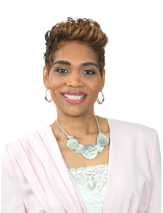
MARCH 17, 2022
When You’re “The Only” In The Room
Many, perhaps most, Black people don’t know what it’s like to show up as our most authentic selves in the workplace and be rewarded for it.
Instead, we spend the majority of our time trying to emulate, mirror, echo, copy, or pretend to “be like” our White counterparts.
We know how to code-switch quickly. We can put on a “professional” facade so fast that it goes unnoticed…on the outside.
Because underneath, we often feel like we have to speak a certain way, style our hair in a certain way, maintain a particular posture, or dress in clothes that don’t fit, if you know what I mean.
Just to be accepted.
Can we call a thing a thing?
To “fit in” is to assimilate to White culture. This means turning off our authentic selves if we want to be accepted, have our contribution valued, our voice heard, or advance our careers.
This is what it means to be “The Only” in the room.
The Impact
The Harvard Business Review explains that “code-switching usually occurs when a stereotype of Black people is in contradiction to what is considered appropriate.”
This means we show up to work and spend a lot of energy trying to figure out “what about me is considered inappropriate in this setting?”
And we do this from group to group, room to room, setting to setting. Day in and day out.
We know what people mean when they say we should “act professional” – that we should act White – but we also know that we’ll be judged by our own community for “acting White to get ahead.”
Just like the Black Tax, being “The Only” in the room is truly exhausting.
What To Do About It?
The HBR article above recommends that “If leaders are truly seeking to promote inclusion and address social inequality, they must begin by understanding why a segment of their workforce believes that they cannot truly be themselves in the office.”
I agree.
Here’s a metric for leaders seeking to measure the impact of DEIB in the workplace: Ask yourself, do our Black employees feel like they can come to work as themselves and experience a sense of belonging without a tradeoff?
Organization At Its Best Founder and Chief Executive Officer, Tawana Bhagwat, has more than twenty-five years of experience directing Human Resource administration, change management, learning and development, facilitation, DEIB, and executive coaching.

